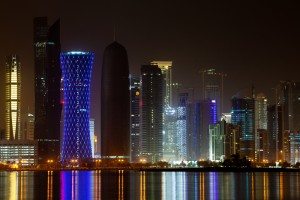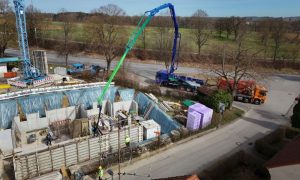Deloitte: GCC projects worth $2tn in pipeline
Region continues to be “an attractive market” despite the forecast 17% decline in contract awards this year

Projects worth $2 trillion are in the pipeline in the GCC, with the market still “attractive” despite a forecast 17% decline in contract awards this year, according to Deloitte.
Activity is forecast to be strongest in Saudi Arabia and the UAE, the professional services firm said in its GCC Powers of Construction 2016 report, which assessed areas including construction, energy, industrial projects and infrastructure works.
“Despite the uncertainty and likely contraction in 2016, this region will continue to offer US$2 trillion worth of opportunities and be an attractive market for businesses anywhere in the world,” the report noted.

Construction, transport and power are forecast to be the leading sectors, with shares of 52%, 19% and 11% respectively.
But the value of regional contracts awarded is set to fall from the $165 billion recorded last year, the report noted. It cited figures from MEED forecasting that contract awards will fall to $140 billion this year, a 17% decline on 2015.
“Awards in 2015 across the GCC amounted to US$165 billion, a good year when you consider historical trends. On a country level, KSA and the UAE did not perform as expected, whereas Qatar and Kuwait exceeded historical awards. In Qatar this was due to investments in infrastructure and the World Cup preparation, and in Kuwait primarily due to large oil and gas investments,” the Deloitte report said.

“Saudi Arabia has been the most affected market and the forecast is a US$10 billion fall in contract awards to US$40 billion, though it continues to be the largest project market and the biggest spender among the GCC countries. The forecast of contract awards in the UAE is set to be stable and mainly driven by the robust construction market in Dubai. There is a substantial amount of projects to deliver in Qatar, such as stadiums, hotels, rail and roads in order to enable the World Cup, and the forecasted value of contract awards stands at US$22 billion. Oman is expected to remain stable with values around US$13billion, and Kuwait – probably the most secure financially among all the states – has a strong amount of planned activity for this year in the construction and transport sectors.”
The growing interest in public–private partnerships is also set to be an important factor behind the financing of future infrastructure projects, the report noted.
It quoted Bill Smith, Partner at Pinsent Masons, who cited Dubai’s new PPP law, which was issued last year.
“We are seeing a renewed interest in PPP as a delivery model for infrastructure in the MENA region. It is evident both from the market activity in the sector, and the new PPP laws that have been enacted, or that are being developed, across the region,” said Smith.
“The new Dubai PPP law takes an innovative stance by encouraging the private sector to approach government agencies with proposals for projects, leaving the way open for enterprising businesses to steal a march on their opposition. It will be interesting to see who will be among the first to exploit this opportunity.”












